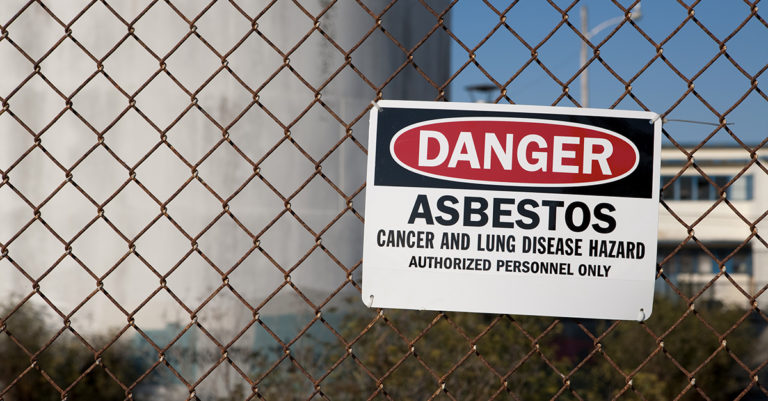
Asbestos continues to endanger American homes, schools and workplaces, and Americans deserve to know exactly how and where. For decades now, the only way Americans have known to avoid asbestos has been through taking extra care while in older buildings and hiring contractors to survey properties for the presence of asbestos.
In the near future, however, we might be better informed of precisely where asbestos is and how we can avoid it.
On Jan. 31, 15 attorneys general from 14 states and the District of Colombia filed a petition for the Environmental Protection Agency (EPA) to collect more data on asbestos, which is needlessly responsible for thousands of deaths each year in the United States. If accepted, the petition will provide a wealth of critical safety information that had been previously denied to the public.
A Simple Request That Could Save Countless Lives
The multi-state petition, co-led by Massachusetts Attorney General Maura Healey and California Attorney General Xavier Becerra, asks the EPA to use its authority under the Toxic Substances Control Act (TSCA) to require asbestos importers and users to disclose their activities. Remarkably, even with everything we know about the deadliness of the substance, asbestos remains exempt from TSCA reporting requirements.
Said Becerra:
“It is widely known that asbestos is one of the most harmful chemicals known to humankind. There is no excuse to continue allowing any amounts of toxic asbestos to pass into our community, especially into the lungs of workers and children, when we know the danger it presents. We call on Acting Administrator Wheeler to begin the process of eliminating exemptions that allow this unsafe chemical to continue to harm tens of thousands of people each year.”
Under the rule Healey and Becerra have proposed, asbestos-using companies would be required to tell the EPA exactly how much asbestos they’re importing and how the deadly mineral is used. This includes both raw asbestos and the products that contain it.
The EPA can (and does) require reporting on other toxic chemicals, of course. The agency also has the power to ban substances outright. And yet, when it comes to asbestos, the EPA has neither required reporting nor implemented a ban, allowing exposure to the mineral to become a national public health epidemic.
“We are grateful and pleased that the states are showing leadership in holding Trump’s EPA accountable for its reckless disregard of public health,” said Linda Reinstein, president and CEO of the Asbestos Disease Awareness Organization (ADAO). “We urge EPA Administrator Wheeler to … eliminate the loophole that exempts asbestos from the same reporting requirements that apply to thousands of other chemicals.”
This Petition Wouldn’t Be the First
According to the latest research, nearly 40,000 Americans die from asbestos-related diseases every year, in large part because asbestos remains legal. Worse, imports surged last year, according to ADAO research.
Ineffective reporting is also to blame. If the EPA doesn’t have basic information on where asbestos can be found and how much is imported, how can regulators properly oversee the industry?
The state AG petition is not the first attempt to fix this. Last September, ADAO and five other advocacy groups started a similar petition called Right to Know, also filed under the TSCA, to urge the EPA to begin collecting critical information on asbestos imports. The petition highlighted the fact that due to glaring loopholes in asbestos regulation, major asbestos importer Occidental Chemical Corporation had not filed any reports.
The EPA denied the ADAO’s petition, continuing a decades-long pattern of stopping short when it comes to protecting Americans from asbestos. “Encouraged” by the AGs’ petition, however, ADAO is hopeful that the EPA will reconsider the Right to Know petition, which was submitted to the agency this past January.
“We feel the state petition validates not only our Right to Know petition, but also our belief that everyone has a right to know when they are put needlessly at risk by toxic chemicals and the companies that use them,” said Reinstein.
“We are more confident than ever that our petition was wrongly denied by the EPA. We hope the EPA will reverse its position, but you can be certain that we will be looking hard at legal action moving forward.”




